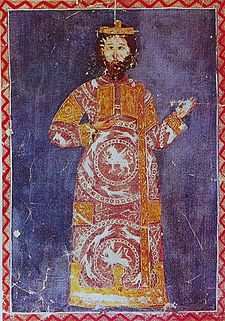People who shouldn’t stage coups

For example there’s the attempted coup by John the Fat. You don’t need to know the time or place, though it was in fact July 31 of 1201 in Constantinople. You just need to know he was called “the Fat” to guess that he was a figurehead, it failed ignominiously and he was executed.
I could go into the details. But they would make dreary reading. It was a short-lived mob driven affair and ended badly.
Now it could be pointed out that it isn’t always that way. People with bad nicknames sometimes do triumph. For instance William the Bastard (Normandy, but later William the Conqueror, England). Mind you, when they called a certain Ivan “the terrible” it was more in the sense of the awe-inspiring than the completely lousy, though actually Ivan was completely terrible, just in a formidable rather than feeble way. Even Charles the Bald (France) isn’t a great moniker though he may not actually have been bald. But John “Lackland” (England) wasn’t meant kindly, nor was “Softsword.”
Also, people with cool handles sometimes fail badly. Philip the Fair (France) was reasonably successful but not remotely fair. It was a reference to his good looks not his good conduct. John the Good (France) was a weak, violent and generally unsuccessful ruler who didn’t do anything worthwhile that I know of. Catherine the Great (Russia) wasn’t that great. Harthacnut (Denmark and England) means Canute the Hardy but he was in generally feeble health and died young, upon which his English dynasty collapsed, and the crown passed to Edward the Confessor (England) which is a much better name than he was a king. Edmund the Deed-Doer (England again) is a good and appropriate name but it didn’t keep him from being murdered by a thief at a banquet (or possibly assassinated). While Edmund Ironside (yes, England once more), named for his great strength, died from having iron thrust into his side. Irony can be pretty ironic sometimes.
To be fair, not in Philip’s sense, being overweight isn’t necessarily an obstacle to greatness; Chesterton suffered from it to a remarkable degree yet was a great man. And late in life William the Conqueror was evidently seriously large. But nobody started calling him “the fat” as he remained, um, vigorous. Whereas France once had a king who was called “Charles the Fat” and he was generally considered lethargic and inept, mostly because he was.
So my advice is that if people are insulting you openly, don’t try to stage a coup or really much of anything else in the realm of grand politics. It’s like the rule that if you’ve been playing poker for half an hour and haven’t spotted the patsy, you’re it. Except in this case you’re nicknamed “the patsy” so you should fold now and get out with whatever cash you have left.
I know they say nothing ventured nothing gained. But if everyone’s calling you “the Fat” then maybe the fact that they also say discretion is the better part of valour is worth noting.